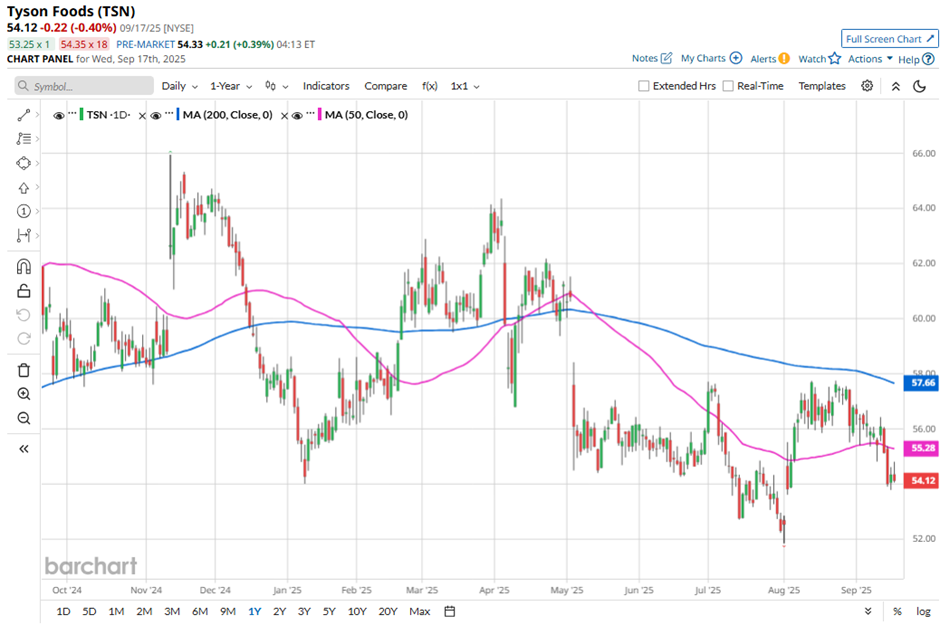
With a market cap of $19.3 billion, Tyson Foods, Inc. (TSN) is one of the world’s largest food companies and a recognized leader in protein. The company produces and markets a wide range of fresh and value-added meat and prepared food products.
Companies valued over $10 billion are generally described as “large-cap” stocks, and Tyson Foods fits right into that category. Its portfolio includes well-known brands such as Tyson, Jimmy Dean, Hillshire Farm, and Ball Park, serving grocery retailers, foodservice operators, and international markets.
Shares of the Springdale, Arkansas-based company have declined 17.9% from its 52-week high of $65.95. Over the past three months, its shares have fallen 1.1%, underperforming the broader Dow Jones Industrials Average's ($DOWI) over 9% gain during the same period.

Longer term, TSN stock has decreased 5.8% on a YTD basis, lagging behind DOWI's 8.2% increase. Moreover, shares of the meat producer have dipped 12.4% over the past 52 weeks, compared to DOWI’s 10.6% return over the same time frame.
Despite a few fluctuations, the stock has been trading below its 50-day and 200-day moving averages since May.

Shares of Tyson Foods rose 2.4% on Aug. 4 after the company reported adjusted EPS of $0.91 and net sales of $13.9 billion, surpassing Wall Street’s expectations. The company also raised its fiscal 2025 revenue forecast to 2% - 3% growth and boosted its annual chicken income projection to $1.3 billion - $1.4 billion. Despite continued losses in the beef segment, Tyson’s strong chicken performance - 3.5% sales growth and 2.4% volume increase, helped reassure investors and drive the stock upward.
In contrast, rival Bunge Global SA (BG) has outpaced TSN stock on a YTD basis, rising 3.4% YTD. However, BG stock has dropped 17.7% over the past 52 weeks, a more pronounced decline than TSN stock.
Due to the stock’s weak performance relative to the Dow, analysts remain cautious about its prospects. TSN stock has a consensus rating of “Hold” from 10 analysts in coverage, and the mean price target of $61.80 represents a premium of 14.2% to current levels.







